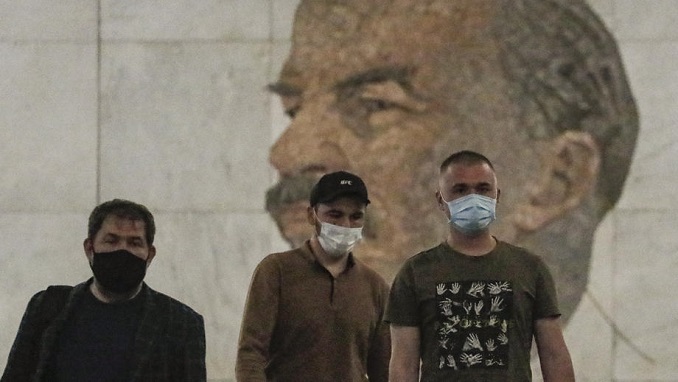On Wednesday, Russian President Vladimir Putin and cabinet officials will debate a plan to proclaim non-working days from October 30 to November 7 as part of the coronavirus battle.
Yesterday, Moscow Mayor Sergey Sobyanin directed that individuals over the age of 60 and those suffering from chronic illnesses remain at home, and that businesses shift at least 30% of their workforce to remote work.
According to Russian media, infectious disease specialists think that these steps will help to limit the spread of the virus.
The timing of new COVID-19-fighting measures is not coincidental. On October 19, Russia reported 1,015 coronavirus fatalities, the highest daily number since the start of the epidemic, and 33,970 new cases. At the same time, according to Johns Hopkins University in the United States, Russia ranks 96th in the world in terms of immunization rates per 100,000 people.
The decision to proclaim non-working days may be beneficial in areas where there has been an increase in cases and hospitalizations, infectious disease specialist Andrei Pozdnyakov said.
Eduard Shunkov, an epidemiologist, believes that it is feasible to reduce the number of new cases if no large events are conducted on non-working days and individuals follow preventative measures. However, as Pozdnyakov pointed out, vaccination is the only option to reverse the bad trend.
According to Ilya Akinfiyev, an infectious disease specialist, the necessity for additional limitations has been based on the number of occupied hospital beds from the beginning of the epidemic. According to the health minister, 255,000 of Russia’s 274,000 hospital beds are presently filled by coronavirus patients.
According to Akinfiyev, the planned “holiday” would do nothing to prevent new infections, but it will “slow down the process” and relieve the strain on the hospital system. Anton Barchuk, Director of the Institute for Interdisciplinary Medical Research at the European University, agreed, saying, “Measures that decrease the number of interactions are usually beneficial.”












